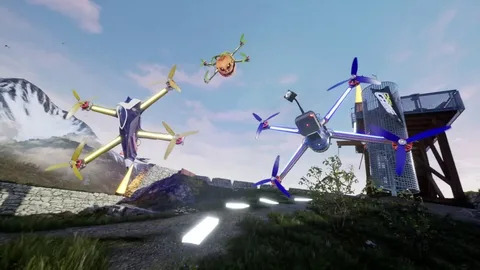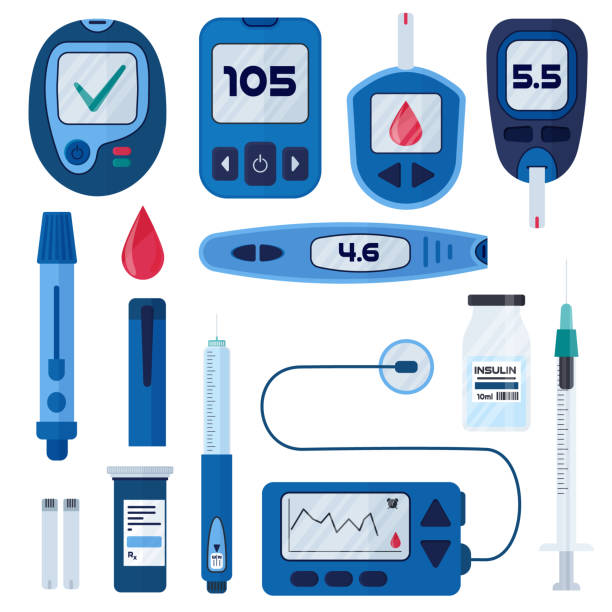Drone racing is an intense, high-speed sport that requires not only technical skill but also strategy, precision, and quick reflexes. One of the most coveted competitions in the world of drone racing is the Drone Champions League (DCL), where the best pilots go head-to-head in high-stakes races. If you’re looking to stand out in the DCL trials and make a name for yourself, it’s crucial to understand the key strategies, skills, and techniques that will set you apart from other aspiring pilots. Whether you’re an experienced drone racer or a newcomer to the scene, this guide will give you the tools to excel during the DCL trials and get noticed by teams and sponsors.
1. Master Your Drone Setup
Before you even think about the trials, one of the most critical aspects of standing out in the Drone Champions League is having a drone setup that works for you. Understanding your drone, optimizing its components, and ensuring it is in top working condition is key to your performance.
Key Components to Focus On:
- Frame: The frame is the skeleton of your drone. Choosing a frame that suits your racing style is essential. Lighter frames can offer more agility, while heavier ones can provide more stability at higher speeds. Research various frame types that are commonly used in professional racing and find one that matches your strengths.
- Motors: Strong, reliable motors are critical for high-speed racing. Ensure your motors provide the necessary thrust for aggressive acceleration and smooth deceleration, which are crucial for tight turns and sharp maneuvers.
- Battery: The battery life in drone racing is everything. A battery that doesn’t last through the entire trial could lead to disappointing results. Opt for high-capacity batteries that offer long-lasting power without sacrificing performance.
- Propellers: Different propeller types are suited to different race types. The size, pitch, and material of the propellers can affect the stability, speed, and maneuverability of your drone. Experiment with different combinations to see which setup yields the best performance in various conditions.
By mastering the technicalities of your drone setup and ensuring all components are fine-tuned for optimal performance, you’ll set yourself up for success during the DCL trials.
2. Hone Your Skills in Simulation
In addition to flying real drones, using a racing simulator can be an incredibly effective way to hone your skills before the DCL trials. Simulators allow you to practice on the exact tracks used in DCL events, giving you a feel for the course layout, obstacles, and dynamics without the risk of crashing or costly repairs.
Benefits of Using a Simulator:
- Track Familiarization: DCL features complex tracks with tight turns, gates, and other obstacles. Racing simulators allow you to practice these tracks repeatedly until you have them memorized, giving you a competitive advantage when it comes time for the real trials.
- Speed and Precision: A simulator allows you to practice specific skills such as throttle control, turning, and reacting to obstacles in a safe and controlled environment. You can push your drone to the limits without worrying about crashing.
- Mental Preparation: Racing simulators can help you train your mind to stay calm under pressure. The ability to make fast decisions and react quickly is crucial during DCL trials, and simulators provide a realistic setting to practice that.
While nothing beats the experience of flying a real drone, simulators are a powerful tool to fine-tune your skills and prepare for the intensity of the DCL trials.
3. Focus on Your Racing Line
One of the most important aspects of drone racing is choosing the correct racing line. The racing line is the optimal path that allows you to navigate the track in the shortest possible time while maintaining control of your drone.
How to Perfect Your Racing Line:
- Turn Entry and Exit: Focus on entering turns at the right angle and exiting them smoothly. Late braking or sharp turns can lose you valuable milliseconds. The goal is to maintain a smooth, flowing line with minimal adjustments.
- Cutting Corners: Successful pilots know when to cut corners and when to give themselves more room to maneuver. Cutting too sharply can result in a loss of control, while staying too wide can slow you down. Find the sweet spot that allows you to maintain speed without sacrificing precision.
- Minimizing Air Time: Whenever you can, minimize the time spent in the air. Drone racing is all about maintaining momentum, so the less time your drone spends off the ground, the faster you’ll go. Use your turns and transitions to maintain a low profile, reducing drag and increasing speed.
Refining your racing line will help you shave seconds off your lap times, an essential skill for standing out in the DCL trials.
4. Develop Quick Reflexes and Decision Making
Drone racing is a sport that requires lightning-fast reflexes and the ability to make split-second decisions. During the DCL trials, your ability to respond to changes in the environment, avoid obstacles, and adapt to different racing conditions can make the difference between a top-tier finish and a disappointing result.
Techniques to Improve Reflexes:
- Training Drills: Engage in drills that force you to make quick decisions. For example, practice responding to sudden obstacles or make tight turns with minimal warning. This kind of training helps develop your muscle memory, so you can react instinctively when needed.
- Real-Time Analysis: When practicing, ask someone to provide feedback on how quickly you make decisions. Are you hesitating? Are you too cautious, or are you overcompensating? Analyzing your real-time decisions will allow you to improve your racing strategy.
- Focus and Concentration: A major part of making fast decisions is being able to maintain full concentration during the race. Distractions can slow you down, so focus on the task at hand and block out all external noise.
The faster you can process information and react to changes in your environment, the more competitive you’ll be during the DCL trials.
5. Build Mental Toughness
Racing in the Drone Champions League trials is intense, and the ability to stay mentally strong under pressure is a major asset. You’ll be racing against other skilled pilots, and even the smallest mistake can cost you a top spot.
Tips for Building Mental Resilience:
- Stay Calm Under Pressure: During high-pressure situations, like a close race with another pilot or a difficult section of track, staying calm is key. Practice mindfulness or visualization techniques to help you stay composed and focused when things get stressful.
- Confidence: Confidence in your abilities is crucial. Trust in your preparation, your skills, and your strategy. The more you believe in yourself, the more likely you are to make the right decisions during the trials.
- Overcome Setbacks: Drone racing is a game of ups and downs. You may experience crashes, mistakes, or unexpected challenges. How you respond to these setbacks will determine your future success. Learn from your mistakes, and use them as motivation to improve.
Being mentally tough will allow you to perform at your best, even in the most challenging trials.
6. Be Consistent and Reliable
One of the most important aspects of standing out in the Drone Champions League trials is consistency. Even if you can perform spectacularly one day, failing to maintain that level of performance over multiple trials will hurt your chances of impressing teams and sponsors.
How to Stay Consistent:
- Training Routines: Establish a training routine that incorporates both real-life practice and simulation sessions. Consistency in your practice schedule will help you build muscle memory and improve your reaction times.
- Focus on Fundamentals: Don’t neglect the basic skills that are the foundation of good drone racing. Whether it’s managing your throttle, navigating turns, or controlling your altitude, always prioritize the fundamentals in your training.
- Track Progress: Keep track of your performance over time. Review your times, note areas where you’re improving, and identify areas where you still need work. Regular self-assessment will help you stay on track and continuously improve.
Consistency is key to proving your skills in the DCL trials and establishing yourself as a serious competitor.
Conclusion
Standing out in the Drone Champions League trials is no easy feat. It requires not only technical skill and strategic thinking but also mental toughness, quick reflexes, and the ability to consistently perform under pressure. By mastering your drone setup, honing your skills through simulators, perfecting your racing line, and developing mental resilience, you’ll position yourself as a standout candidate in the trials. With hard work, determination, and a commitment to constant improvement, you can make your mark in the Drone Champions League and set yourself up for success in the world of professional drone racing.




